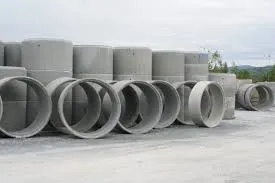- Afrikaans
- Albanian
- Amharic
- Arabic
- Armenian
- Azerbaijani
- Basque
- Belarusian
- Bengali
- Bosnian
- Bulgarian
- Catalan
- Cebuano
- China
- China (Taiwan)
- Corsican
- Croatian
- Czech
- Danish
- Dutch
- English
- Esperanto
- Estonian
- Finnish
- French
- Frisian
- Galician
- Georgian
- German
- Greek
- Gujarati
- Haitian Creole
- hausa
- hawaiian
- Hebrew
- Hindi
- Miao
- Hungarian
- Icelandic
- igbo
- Indonesian
- irish
- Italian
- Japanese
- Javanese
- Kannada
- kazakh
- Khmer
- Rwandese
- Korean
- Kurdish
- Kyrgyz
- Lao
- Latin
- Latvian
- Lithuanian
- Luxembourgish
- Macedonian
- Malgashi
- Malay
- Malayalam
- Maltese
- Maori
- Marathi
- Mongolian
- Myanmar
- Nepali
- Norwegian
- Norwegian
- Occitan
- Pashto
- Persian
- Polish
- Portuguese
- Punjabi
- Romanian
- Russian
- Samoan
- Scottish Gaelic
- Serbian
- Sesotho
- Shona
- Sindhi
- Sinhala
- Slovak
- Slovenian
- Somali
- Spanish
- Sundanese
- Swahili
- Swedish
- Tagalog
- Tajik
- Tamil
- Tatar
- Telugu
- Thai
- Turkish
- Turkmen
- Ukrainian
- Urdu
- Uighur
- Uzbek
- Vietnamese
- Welsh
- Bantu
- Yiddish
- Yoruba
- Zulu
Aug . 02, 2024 14:27 Back to list
Exploring the Benefits and Efficiency of Oil Condensing Combination Boilers for Home Heating Solutions
Understanding Oil Condensing Combi Boilers An Efficient Heating Solution
As energy efficiency becomes increasingly important in modern homes, oil condensing combi boilers have gained significant attention for their innovative design and operational advantages. These boilers not only provide central heating but also offer hot water on demand, making them a popular choice among homeowners, especially in rural areas where natural gas supplies may be limited.
What is an Oil Condensing Combi Boiler?
An oil condensing combi boiler is a type of heating system that utilizes oil as its primary fuel source while employing a condensing technology to extract maximum energy from that fuel. Unlike traditional heating systems that rely solely on the combustion of fuel, condensing boilers capture the heat that would otherwise be wasted in the flue gases. This advanced technology enables the boiler to achieve higher energy efficiency ratings, often exceeding 90%, which can lead to significant savings on energy bills.
How Does it Work?
The operational principle of an oil condensing combi boiler revolves around the process of condensation. When oil is burned, it produces hot gases that, in a conventional boiler, are expelled through the flue. However, in a condensing boiler, these gases are cooled to the point where the water vapor within them condenses into liquid water, releasing additional heat. This recovered heat is then routed back into the heating system, enhancing overall efficiency.
Moreover, combi boilers are designed to provide both space heating and domestic hot water without the need for a separate hot water cylinder or tank. This dual functionality makes them compact and suitable for homes with limited space.
Benefits of Oil Condensing Combi Boilers
1. Energy Efficiency As mentioned, oil condensing combi boilers offer high energy efficiency levels. By utilizing condensing technology, they can convert more of the fuel’s energy into usable heat, leading to lower energy consumption.
oil condensing combi boiler

2. Cost Savings The improved efficiency translates into reduced heating bills, making them a financially viable option in the long run. Although the initial investment may be higher than that of conventional boilers, the operational savings can quickly offset the costs.
3. Space-Saving Design The combination of heating and hot water in a single unit means that there's no need for bulky storage tanks. This makes them an excellent choice for smaller homes or apartments where space is at a premium.
4. Environmentally Friendly Higher efficiency means lower carbon emissions. For those concerned about their ecological footprint, oil condensing combi boilers represent a greener alternative to traditional heating systems.
5. Reliability and Durability Oil boilers are known for their reliability and longevity. With proper maintenance, these systems can last for many years, providing consistent heating and hot water without frequent repairs.
Installation and Maintenance Considerations
While oil condensing combi boilers offer many advantages, it is essential to consider the installation and maintenance requirements. It is recommended to engage a qualified heating engineer for the installation process to ensure optimal performance and compliance with regulations. Regular maintenance checks will also help maintain efficiency and prolong the boiler's life.
Conclusion
Oil condensing combi boilers stand out as an efficient and effective option for home heating and hot water supply. With their advanced technology, they maximize energy use while reducing environmental impact and operating costs. As homeowners seek sustainable and cost-effective heating solutions, oil condensing combi boilers are likely to remain a popular choice, particularly in areas where oil remains the fuel of choice. Their combination of efficiency, reliability, and compact design makes them an attractive investment for modern living.
-
8mm Thin-Walled Cast Steel Manhole Cover Pallet Bottom Ring | Durable
NewsAug.04,2025
-
Premium Cast Iron Water Main Pipe: Durable, Corrosion-Resistant
NewsAug.03,2025
-
Durable Cast Iron Water Mains | AI-Optimized Systems
NewsAug.02,2025
-
High-Efficiency Propane Boiler for Baseboard Heat | Save Energy
NewsAug.01,2025
-
Premium Source Suppliers for Various Gray Iron Castings
NewsJul.31,2025
-
Durable Cast Iron Water Main Pipes | Long-Lasting
NewsJul.31,2025


